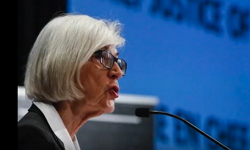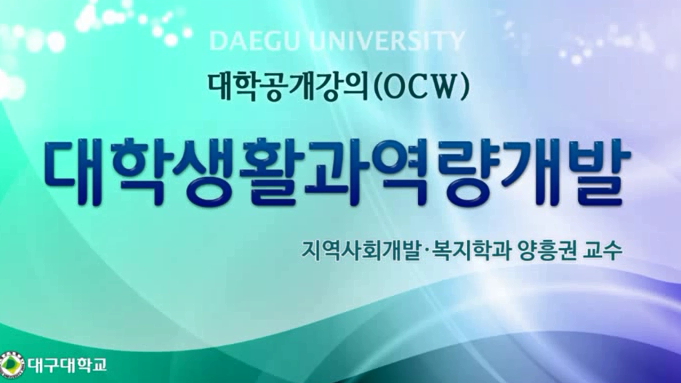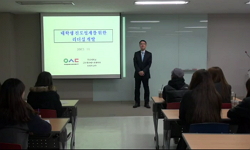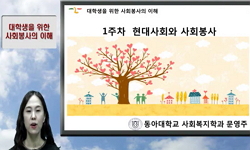This study examined if gender has any impact on the use of smart media and SNS fatigue of university students while analyzing its effects in moderating the relationship between SNS fatigue and academic procrastination behaviors and learning flow. Data...
http://chineseinput.net/에서 pinyin(병음)방식으로 중국어를 변환할 수 있습니다.
변환된 중국어를 복사하여 사용하시면 됩니다.
- 中文 을 입력하시려면 zhongwen을 입력하시고 space를누르시면됩니다.
- 北京 을 입력하시려면 beijing을 입력하시고 space를 누르시면 됩니다.

대학생의 스마트미디어 사용, SNS 피로감, 학업지연 행동과 학습몰입에 있어서 성차 및 성별 조절효과 = A Study on the Gender Differences in the Use of Smart Media and SNS Fatigue of University Students: Focusing on the Moderating Effects of Gender on Academic Procrastination Behaviors and Learning Flow
한글로보기https://www.riss.kr/link?id=A107017883
- 저자
- 발행기관
- 학술지명
- 권호사항
-
발행연도
2020
-
작성언어
Korean
- 주제어
-
등재정보
KCI등재
-
자료형태
학술저널
-
수록면
549-559(11쪽)
-
KCI 피인용횟수
0
- DOI식별코드
- 제공처
-
0
상세조회 -
0
다운로드
부가정보
다국어 초록 (Multilingual Abstract)
This study examined if gender has any impact on the use of smart media and SNS fatigue of university students while analyzing its effects in moderating the relationship between SNS fatigue and academic procrastination behaviors and learning flow. Data were collected from 267 students from 4-year university located in Seoul and Pusan(male 60.3%), and analyzed by means of t-test and hierarchical regression analyses. The results of the study are following: First, female students spent more time in using smart media than did male students; Second, the frequency of using smart media per day was significantly higher for male students compared to female students. Third, female students were found out to feel more SNS fatigue than male students; Fourth, female students also showed higher score in the variable of academic procrastination behaviors than did male students; Fifth, the moderating effect of gender on academic procrastination behaviors via SNS fatigue was statistically significant, meaning that female students who felt high degree of SNS fatigue were more vulnerable to academic procrastination behaviors than the case of male students. Lastly, however, the moderating effect was not found out in the relationship between SNS fatigue and learning flow. In summary, this study showed the plausibility of female students spending more time on smart media, feeling more SNS fatigue, and finally procrastinating academic work more than did male students. Therefore, this study suggested that gender should be considered at first when higher education institutions plan to provide intervention programs for their students to prevent them from the overuse of smart media and suffering from SNS fatigue.
참고문헌 (Reference)
1 정미경, "초등학생의 자기조절학습 발달경향 분석" 한국영재교육학회 10 (10): 79-99, 2011
2 최미경, "스마트폰 이용자의 시간관과 미디어 멀티태스킹 이용행태 간의 관계 탐색: 20∼50대 스마트폰 이용자를 중심으로" 한국커뮤니케이션학회 26 (26): 259-290, 2018
3 권대봉, "성인학습자의 학습네트워크와 신뢰의 학습몰입에 대한 영향" 원격교육연구소 11 (11): 1-20, 2015
4 김아영, "성인용 학습몰입 척도 개발 및 타당화" 한국교육심리학회 24 (24): 39-59, 2010
5 전해옥, "성별에 따른 대학생의 학업정서와 대인관계 능력이SNS 중독 경향성에 미치는 영향" 한국산학기술학회 17 (17): 269-277, 2016
6 임정수, "성별, 연령대, 요일에 따른 시간대별 미디어 이용의 집중도 분석" 사회과학연구원 21 (21): 151-178, 2014
7 김옥분, "비교과 프로젝트 교육프로그램 참여 대학생의 학년과 성별에 따른 학습몰입, 창의성과 학업성취 차이" 사단법인 인문사회과학기술융합학회 8 (8): 543-551, 2018
8 이서윤, "모바일 기반 대인간 커뮤니케이션에서 피로감을느끼는 요인에 대한 연구: 카카오톡을 중심으로" 사이버커뮤니케이션학회 33 (33): 255-303, 2016
9 H. Krasnova, "Why men and women continue to use social networking sites: The role of gender differences" 26 (26): 261-284, 2017
10 S. Davenport, "Twitter versus Facebook:Exploring the role of narcissism in the motives and usage of different social media platforms" 32 : 212-220, 2014
1 정미경, "초등학생의 자기조절학습 발달경향 분석" 한국영재교육학회 10 (10): 79-99, 2011
2 최미경, "스마트폰 이용자의 시간관과 미디어 멀티태스킹 이용행태 간의 관계 탐색: 20∼50대 스마트폰 이용자를 중심으로" 한국커뮤니케이션학회 26 (26): 259-290, 2018
3 권대봉, "성인학습자의 학습네트워크와 신뢰의 학습몰입에 대한 영향" 원격교육연구소 11 (11): 1-20, 2015
4 김아영, "성인용 학습몰입 척도 개발 및 타당화" 한국교육심리학회 24 (24): 39-59, 2010
5 전해옥, "성별에 따른 대학생의 학업정서와 대인관계 능력이SNS 중독 경향성에 미치는 영향" 한국산학기술학회 17 (17): 269-277, 2016
6 임정수, "성별, 연령대, 요일에 따른 시간대별 미디어 이용의 집중도 분석" 사회과학연구원 21 (21): 151-178, 2014
7 김옥분, "비교과 프로젝트 교육프로그램 참여 대학생의 학년과 성별에 따른 학습몰입, 창의성과 학업성취 차이" 사단법인 인문사회과학기술융합학회 8 (8): 543-551, 2018
8 이서윤, "모바일 기반 대인간 커뮤니케이션에서 피로감을느끼는 요인에 대한 연구: 카카오톡을 중심으로" 사이버커뮤니케이션학회 33 (33): 255-303, 2016
9 H. Krasnova, "Why men and women continue to use social networking sites: The role of gender differences" 26 (26): 261-284, 2017
10 S. Davenport, "Twitter versus Facebook:Exploring the role of narcissism in the motives and usage of different social media platforms" 32 : 212-220, 2014
11 B. Janković, "The impact of Facebook and smart phone usage on the leisure activities and college adjustment of students in Serbia" 55 : 354-363, 2016
12 P. Sheldon, "Student favourite: Facebook and motives for its use" 23 (23): 39-53, 2008
13 B. J. Zimmerman, "Student differences in self-regulated learning:Relating grade, sex, and giftedness to self efficacy and strategy use" 82 (82): 51-59, 1990
14 T. Doleck, "Social networking and academic performance: A review" 23 (23): 435-465, 2018
15 D. Liu, "Self-disclosure on social networking sites, positive feedback, and social capital among Chinese college students" 38 : 213-219, 2014
16 최은영, "SNS 피로감이 대학생의 학업지연행동 및 학습몰입에 미치는 영향" 한국지식정보기술학회 15 (15): 373-382, 2020
17 H. J. Michielsen, "Psychometric qualities of a brief self-rated fatigue measure: The Fatigue Assessment Scale" 43 (43): 345-352, 2003
18 A. Bianchi, "Psychological predictors of problem mobile phone use" 8 (8): 39-51, 2005
19 J. R. Ferrari, "Procrastination and attention:Factor analysis of attention deficit, boredomness, intelligence, self-esteem, and task delay frequencies" 16 : 185-196, 2001
20 A. Thatchera, "Online flow experiences, problematic Internet use and Internet procrastination" 24 (24): 2236-2254, 2008
21 V. Barker, "Older adolescents' motivations for social network site use: The influence of gender, group identity, and collective self-esteem" 12 (12): 209-213, 2009
22 N. Haferkamp, "Men are from Mars, women are from Venus? Examining gender differences in self-presentation on social networking sites" 15 (15): 91-98, 2012
23 E. Christofides, "Information disclosure and control on Facebook: Are they two sides of the same coin or two different processes?" 12 : 341-345, 2009
24 A. R. Lee, "Information and communication technology overload and social networking service fatigue: A stress perspective" 55 : 51-61, 2016
25 J. Morahan-Martin, "Incidence and correlates of pathological internet use among college students" 16 : 13-29, 2000
26 R. K. Purvanova, "Gender differences in burnout: A meta-analysis" 77 (77): 168-185, 2010
27 B. U. Özer, "Exploring academic procrastination among Turkish students: Possible gender differences in prevalence and reasons" 149 (149): 241-257, 2009
28 B. U. Özer, "Exploring academic procrastination among Turkish students: Possible gender differences in prevalence and reasons" 149 (149): 241-257, 2009
29 S. A. Jackson, "Development and validation of a scale to measure optimal experience: The flow state scale" 18 (18): 17-35, 1996
30 A. Acar, "Antecedents and consequences of online social networking behavior: The case of Facebook" 3 (3): 62-83, 2008
31 A. Acar, "Antecedents and consequences of online social networking behavior: The case of Facebook" 3 (3): 62-83, 2008
32 L. J. Solomon, "Academic procrastination: Frequency and cognitive-behavioral correlates" 31 (31): 503-509, 1984
33 L. A. Rabin, "Academic procrastination in college students: The role of self-reported executive function" 33 (33): 344-357, 2011
34 E-H. Seo, "A study for the development of a treatment program for overcoming academic procrastination of college students" University of Yonsei 2006
35 E. Çam, "A new addiction for teacher candidates: Social networks" 11 (11): 14-19, 2012
36 M. E. Aitken, "A Personality Profile of the College Student Procrastinator" University of Pittsburgh 1983
동일학술지(권/호) 다른 논문
-
- 한국지식정보기술학회
- 백순철
- 2020
- KCI등재
-
- 한국지식정보기술학회
- 김용후
- 2020
- KCI등재
-
Elasticsearch 기반의 동적 추천 아키텍쳐 및 절차
- 한국지식정보기술학회
- 정지현
- 2020
- KCI등재
-
스마트 공장의 법제도 환경: 정부 지원 체계 및 산업안전보건을 중심으로
- 한국지식정보기술학회
- 김준우
- 2020
- KCI등재
분석정보
인용정보 인용지수 설명보기
학술지 이력
| 연월일 | 이력구분 | 이력상세 | 등재구분 |
|---|---|---|---|
| 2028 | 평가예정 | 재인증평가 신청대상 (재인증) | |
| 2022-01-01 | 평가 | 등재학술지 유지 (재인증) |  |
| 2019-04-09 | 학회명변경 | 영문명 : 미등록 -> Korea Knowledge Information Technology Society |  |
| 2019-01-01 | 평가 | 등재학술지 유지 (계속평가) |  |
| 2016-01-01 | 평가 | 등재학술지 유지 (계속평가) |  |
| 2014-03-17 | 학술지명변경 | 외국어명 : Journal of The Korea Knowledge Information Technology Society -> Journal of Knowledge Information Technology and Systems |  |
| 2012-01-01 | 평가 | 등재학술지 선정 (등재후보2차) |  |
| 2011-01-01 | 평가 | 등재후보 1차 PASS (등재후보1차) |  |
| 2009-01-01 | 평가 | 등재후보학술지 선정 (신규평가) |  |
학술지 인용정보
| 기준연도 | WOS-KCI 통합IF(2년) | KCIF(2년) | KCIF(3년) |
|---|---|---|---|
| 2016 | 0.39 | 0.39 | 0.29 |
| KCIF(4년) | KCIF(5년) | 중심성지수(3년) | 즉시성지수 |
| 0.25 | 0.22 | 0.312 | 0.07 |




 KCI
KCI






